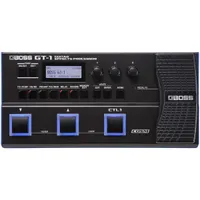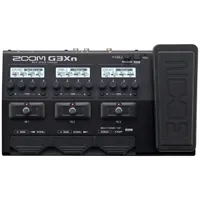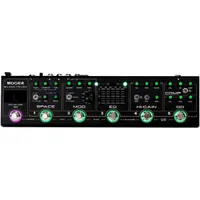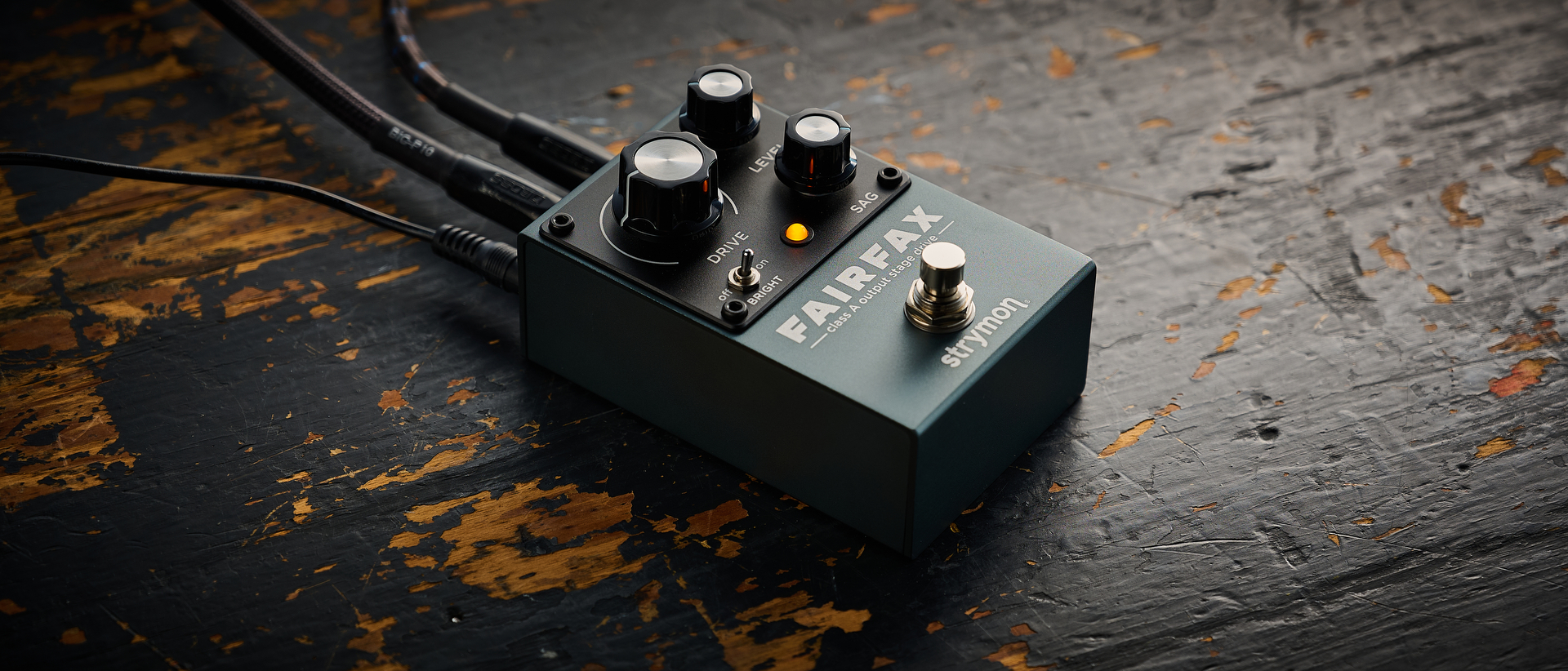Best budget multi-effects pedals: access a world of effects at a reasonable price
More is more with these budget do-it-all bargains from Zoom, Line 6, Mooer and NUX
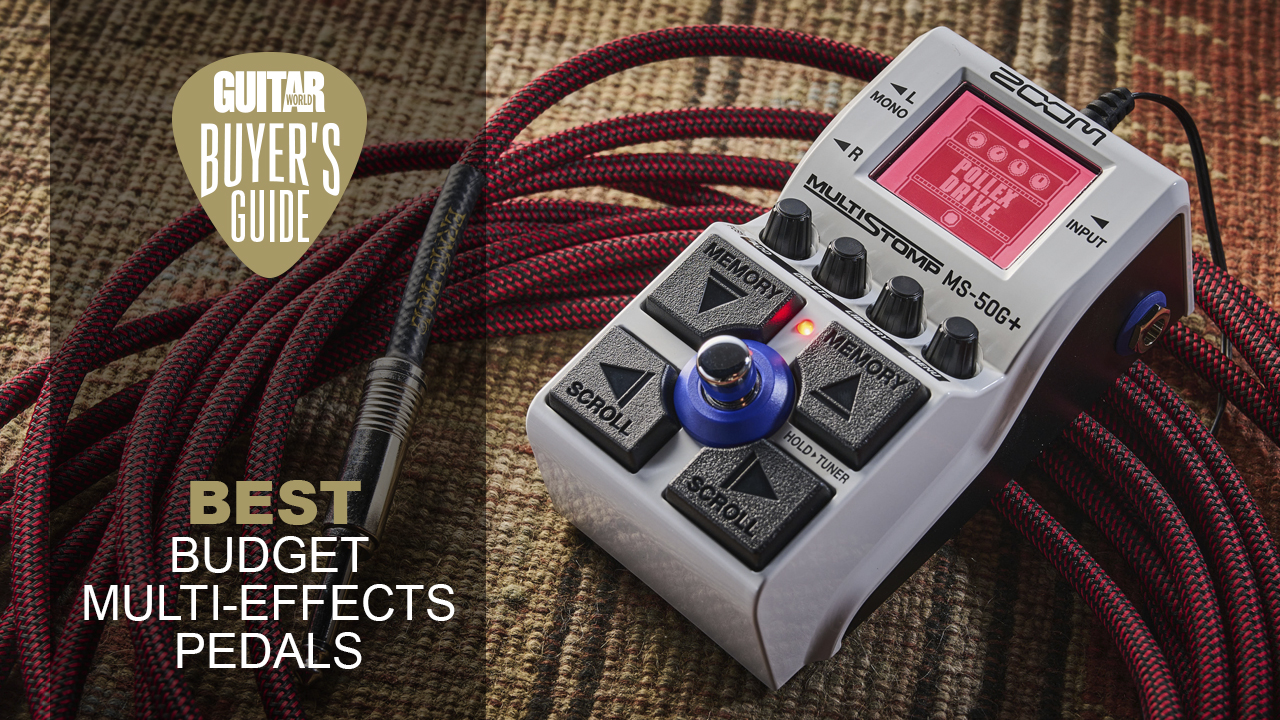
All the latest guitar news, interviews, lessons, reviews, deals and more, direct to your inbox!
You are now subscribed
Your newsletter sign-up was successful
Whether you're just getting started with effects, or you don't have the cash to spend on a pedalboard full of boutique stompboxes, the best budget multi-effects are here to help. Packed with great sounds that include amp modeling, overdrives, fuzz, reverb, delay, and pretty much anything else, the world can still be your oyster even if you're on a sardine budget.
Nowadays nearly all multi-effects pedals do some form of amp modeling, which means it's now even more accessible to have a whole rig in a single pedal. Of course, if you'd prefer just a pure multi-effects we've got options for you here, but to be honest these are a bit of a dying breed these days.
If you're new to the multi-effects game, we've answered all the common questions in our FAQs section, so head there if you want to learn a little more before you buy. To get straight to choosing a cheap multi-effects, just keep scrolling.
Our top picks
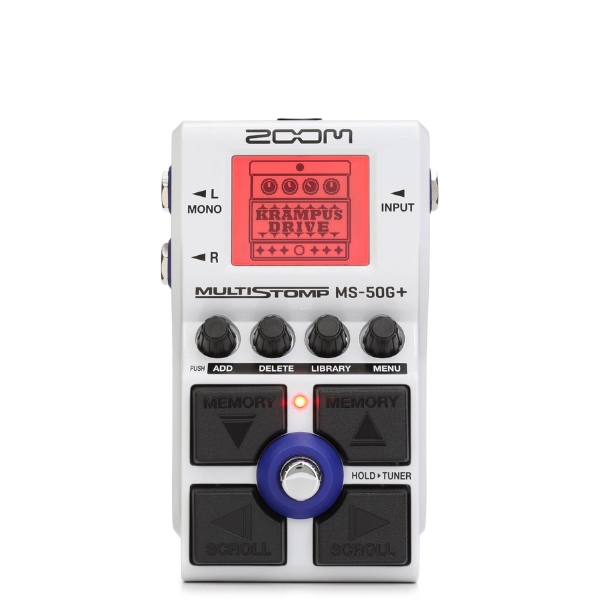
With an excellent range of sound and the ability to use up to six sounds at any one time, the Zoom MS-50G+ is a great shout for amp modeling and effects on a tight budget. It's lovely and compact too.
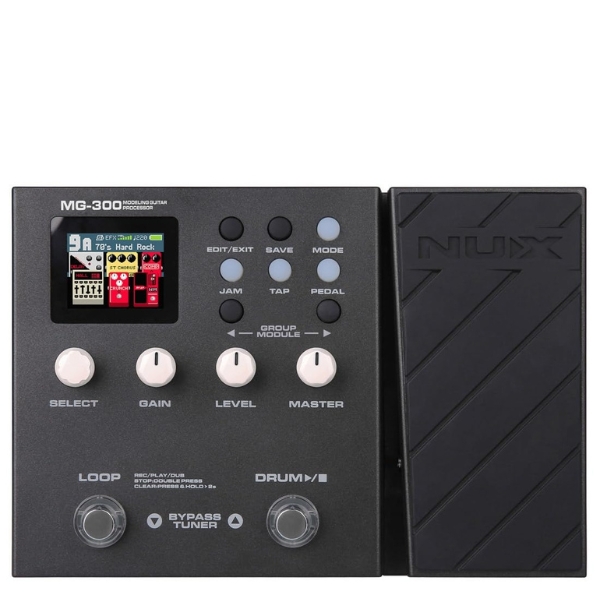
If you want a boatload of amp and effects but still want to keep the cost low, the NUX MG-300 offers a plethora of sounds for you to utilize, as well as an expression pedal. It works as an audio interface, and you can even load 3rd party IRs.
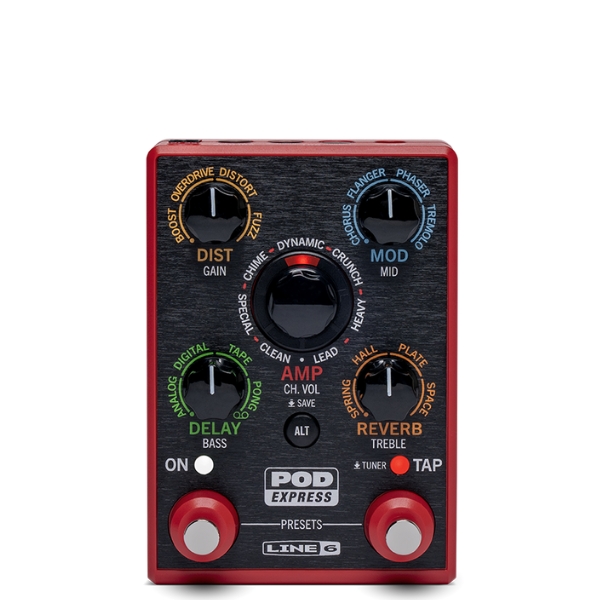
With superb sounding amp and effects models from the HX Series, Line 6's POD Express packs a lot of sounds into a tiny footprint enclosure. We love how easy it is to use, and it works as an audio interface too.
Best overall
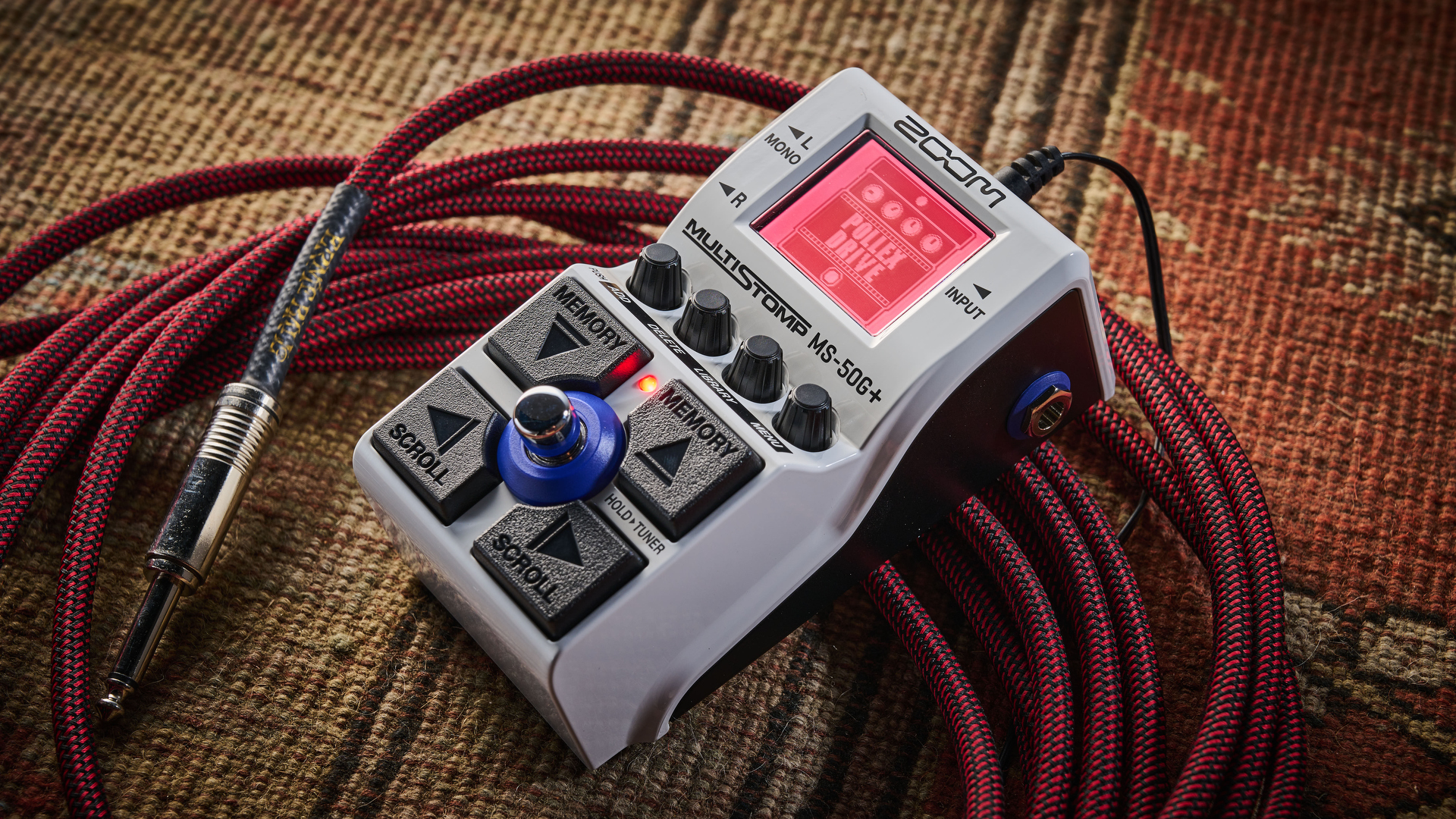
Specifications
Reasons to buy
Reasons to avoid
✅Buy if you want a pure multi-effects pedal: With top-quality effects and little in the way of amp modeling, this is one for the guitarists who don't need a modeled rig and just want great-sounding FX.
❌Avoid if you have big hands: The four rotary encoders are pretty small, so you might struggle if you have hands like shovels.
If you think of affordable multi-effects, chances are Zoom is a brand that’ll be top of the list. They've released many a classic pedal that's found cult status with guitarists, but this latest release in the Zoom MS-50G+ firmly pushes them into the future.
With 100 different effects built in, you've got a lot of choice whether you want drives, fuzzes, chorus, reverb, or delay tones. It's a small pedal, but the MS-50G+ can run up to six effects at once, in whatever order you choose. This flexibility means it's ideal for rounding out a cramped pedalboard with additional sounds that you might not use often.
The MS-50G+ has some incredible sounds in it, and we particularly enjoyed the chorus and modulation effects it offers. Able to range from subtle to extreme, they're great for thickening up your tone. The delays and reverbs are excellent too, and the selection will cater to a huge variety of guitar players.

"For a beginner looking to explore the world of effects, or even a more seasoned player seeking a compact solution to requiring a plethora of different sounds, I’d definitely recommend it. The Zoom MS-50G+ Multistomp is really intuitive and easy to use, though you do have to be quite precise with your feet."
Read more: Zoom MS-50G+ Multistomp review
Best value

2. NUX MG-300
Our expert review:
Specifications
Reasons to buy
Reasons to avoid
✅Buy if you want bang for your buck: With amp modeling, a plethora of effects, plus custom IR loading, the NUX MG-300 does a lot for relatively little money.
❌Avoid if you don't want a small screen: The screen is pretty difficult to read when standing, so avoid if you don't want to be squinting at a tiny screen all the time.
NUX is no stranger to the multi-effects game, but the MG-300 may be its best unit yet. This value-packed modeler builds on what NUX established with previous offerings and adds user-friendly features that every guitarist will enjoy.
Hidden inside are powerful DSP chips that power the impressive White-Box Amp Modeling algorithm and Core-Image post-effects. Better yet, the new MG-300 introduces moveable signal blocks for an extra level of flexibility. There’s also impulse response, featuring 25 guitar cabs, eight bass cabs, and three acoustic guitar IRs. The MG-300 isn’t just for effects; it offers a plethora of enjoyable tones that complement its awesome effects.
The expression pedal can accommodate volume swells and wah-wah action, and its ability to function as an audio interface with a USB-C output makes this incredibly affordable machine super versatile. For us, the NUX MG-300 is a reliable, robust, and fantastic-sounding multi-effects unit that punches well above its weight.

"I think the NUX MG-300 is a brilliant multi-effects pedal for the beginner guitarist. It’s packed full of great sounds and options, yet remains easy enough to navigate that newbie guitarists won’t struggle to get their heads around it. The looper is a powerful addition for practicing rhythm and lead playing, and although the connectivity is basic, it does exactly what most beginner guitarists will need."
Read more: NUX MG-300 review
Best compact
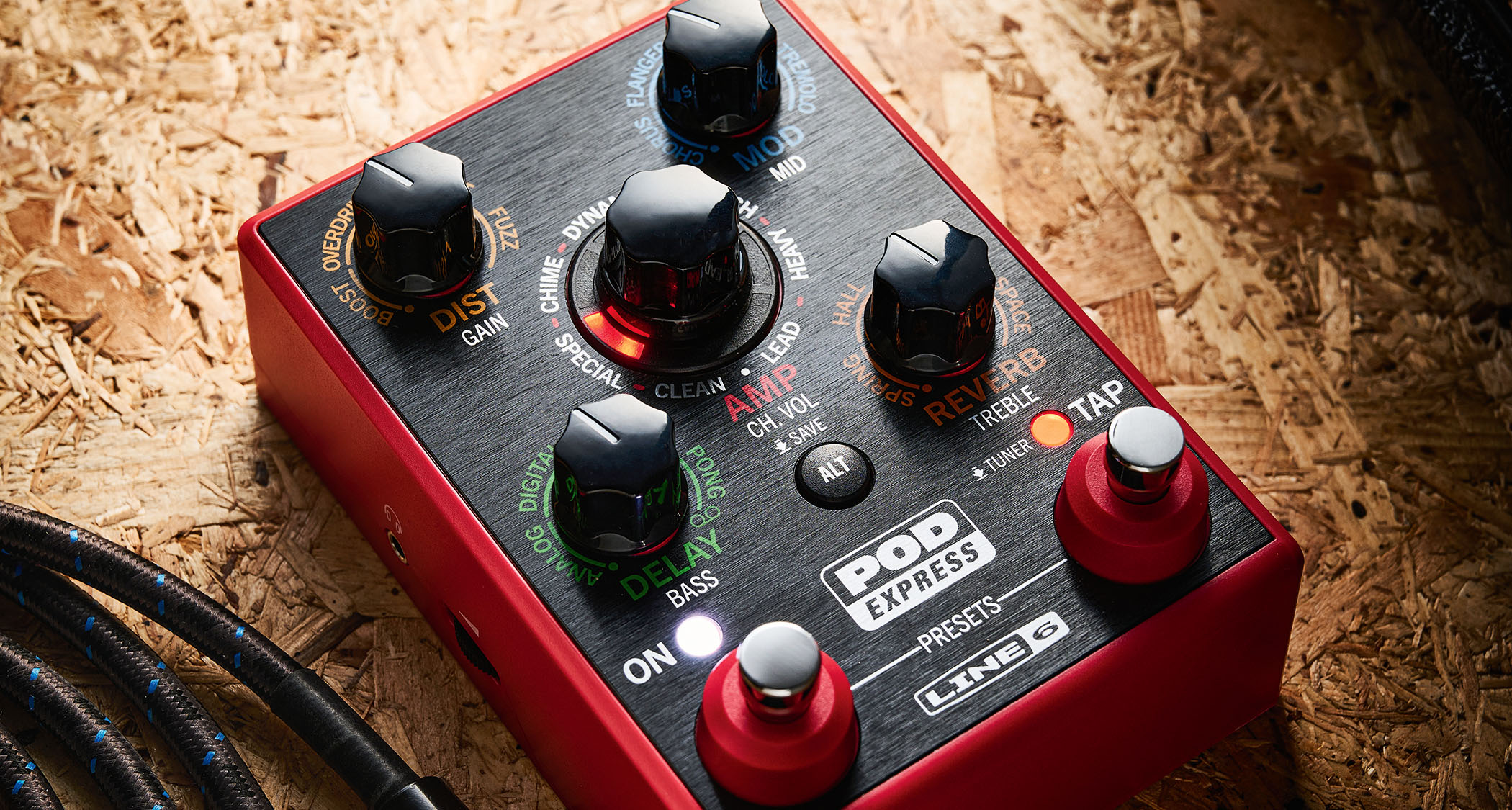
3. Line 6 POD Express
Our expert review:
Specifications
Reasons to buy
Reasons to avoid
✅Buy if you want something small: Packing 7 high-quality effects and 7 amp models from the HX Series, the POD Express gives you great tones in a tiny package.
❌Avoid if you prefer a screen: Some will find the lack of a screen liberating, whereas others will absolutely hate it. Avoid if you're the visual type.
The latest addition to the iconic POD family, Line 6's POD Express delivers HX quality amp models and effects in a teeny tiny package. It also includes a USB-C audio interface, looper, and tuner, making it an all-encompassing multi-effects for relatively little money.
You can save 21 of your own presets, making it easy to recall your desired tone, but you will have to memorize some button presses to start diving deeper into the options. It's able to be powered by batteries too, making it a great shout for the traveling musician.
We really loved the sound of the amps and the effects on this pedal. They certainly don't let down the credentials the HX Series has built over the years, with lovely, rich tones and deep modulation sounds that will keep you playing. The reverbs and delays are luscious offering plenty of space to your guitar tone, making this a great shout for a compact multi-effects pedal.

"The POD Express has the added edge of being able to integrate into our existing rigs, and not everyone wants to get their hands dirty with the details. Ultimately, it’s an excellent all-rounder, even if it’s not quite a master in any single area."
Read more: Line 6 POD Express review
Best for simplicity
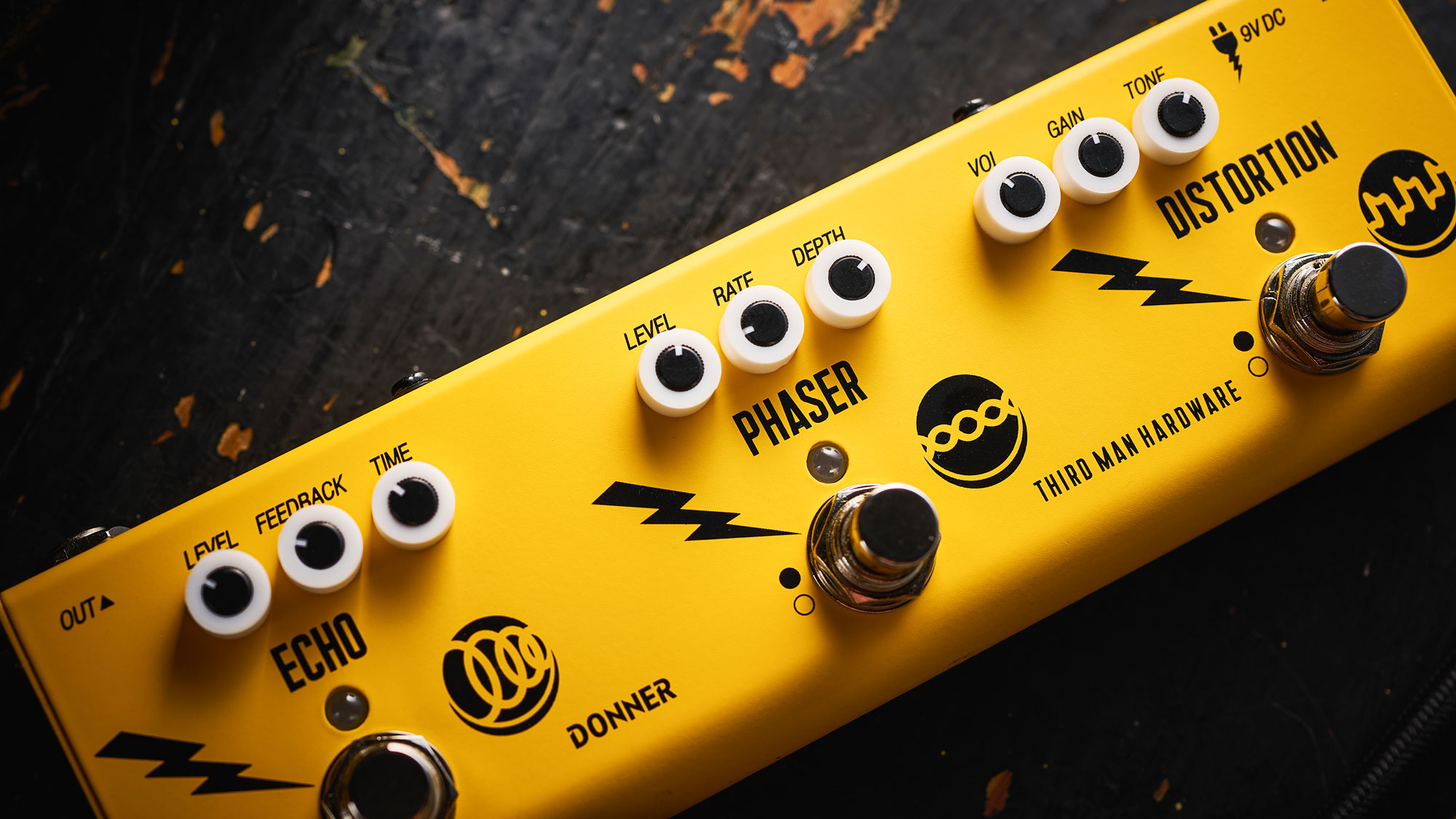
Specifications
Reasons to buy
Reasons to avoid
✅Buy if you want something easy to use: We love the simplicity of this collaboration from Jack White and Donner, which makes it a breeze to start dialing in great guitar tones.
❌Avoid if you want loads of effects: Others may find this limiting with just three effects, so look elsewhere for a wider range.
In a brand new collaboration with Chinese affordable effects company, Donner, Jack White has opened up his iconic, gritty sound to the masses. The Triple Threat is the first collaboration between the former White Stripes man and Donner, offering an easy-to-use, good-quality multi-effects pedal at a very attractive price.
You may be thinking that three effects push the limit for being considered a ‘multi-effects unit,’ but the Triple Threat’s charm lies in its simplicity. It offers an Echo, Phaser, and Distortion, each based on Donner’s own effects pedals. These have been enhanced by White and Third Man’s expertise to ensure a sturdier build and higher-quality components. It’s easy to use and sounds great.
As for sturdiness, the Triple Threat is no delicate creature. The aluminum alloy casing and metal footswitches are very rigorous whilst retaining a small and portable construction. Although the effects are in a fixed order and can’t be changed, the Triple Threat is a great tool for adding Stripes-like mojo on a budget.

"There’s no way of rearranging the effect order, and the preset/mixed pedal nature of the Triple Threat means that using it in an effects loop might not be ideal. But, it’s a fun, affordable way of adding extra sounds, or possibly even getting to grips with three of the major pedal food groups."
Read more: Donner X Third Man Triple Threat review
Best for beginners
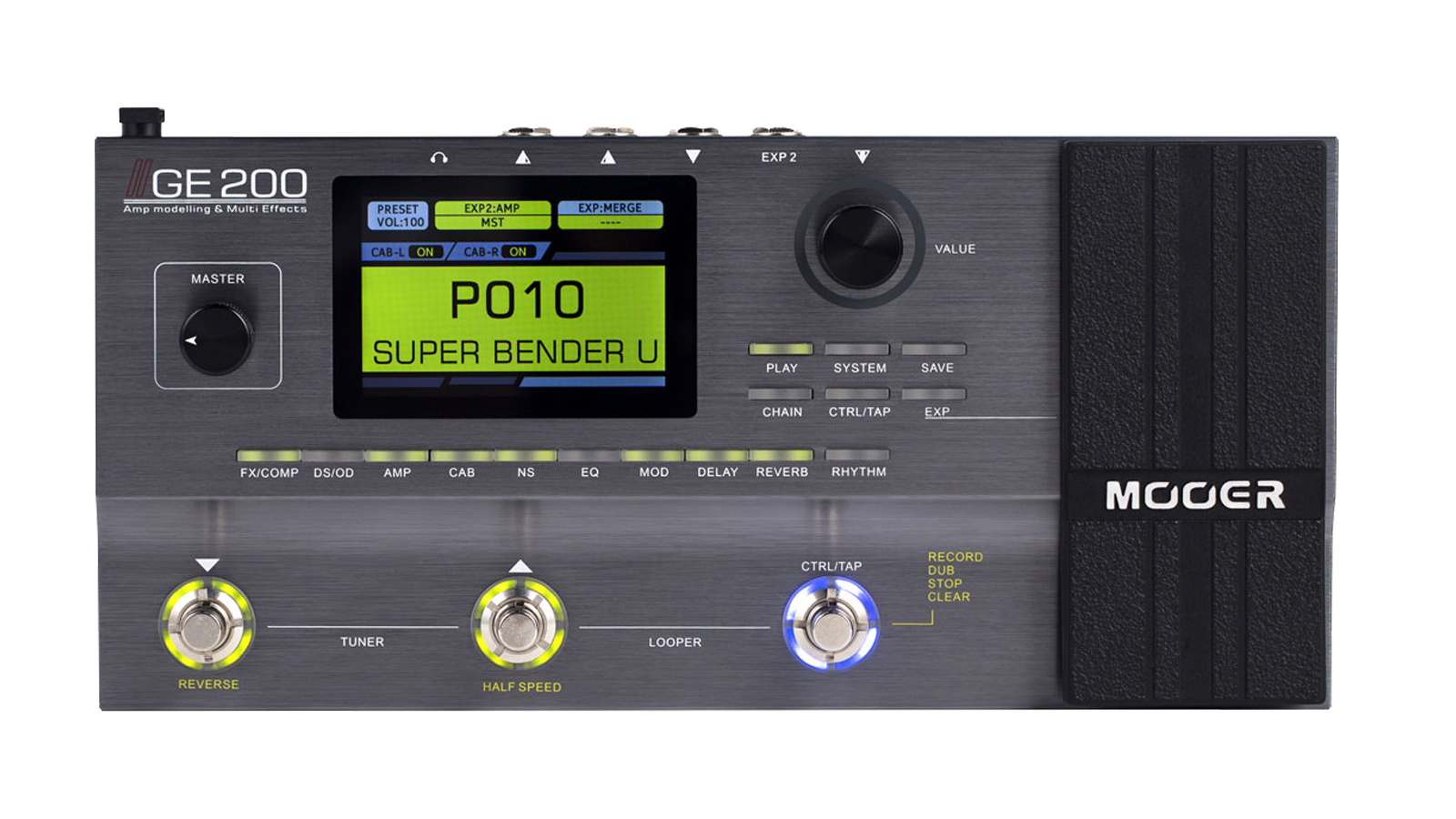
5. Mooer GE-200
Our expert review:
Specifications
Reasons to buy
Reasons to avoid
✅Buy if you're new to multi-effects: We love the user interface of the GE-200, which makes it super easy to start diving into signal chains and creating your own effects.
❌Avoid if you want to gig: It's not the most rugged, so we'd steer clear if you're planning on taking your new multi-effects to live shows.
A pared-down version of the larger Mooer GE-300, the GE-200 is a huge amount of firepower at its price point. There are all the effect types you could want, along with utility functions like a noise gate, EQ and looper.
Most importantly, the GE-200 has a decent user interface. With such a complicated unit, delivering great sounds without an intuitive interface would have been a frustrating missed opportunity. Luckily, the GE-200 is intuitive enough to operate, meaning you don’t have to reach for the manual every five minutes.
The stock models and impulse reponses are pretty decent, but the GE-200 also supports external loading. This means they're easily replaced if you have models that you prefer. However, the desktop editor leaves a little to be desired; it's somewhat clunky and awkward compared to competitor options such as Boss' Tone Studio.
Best for bass
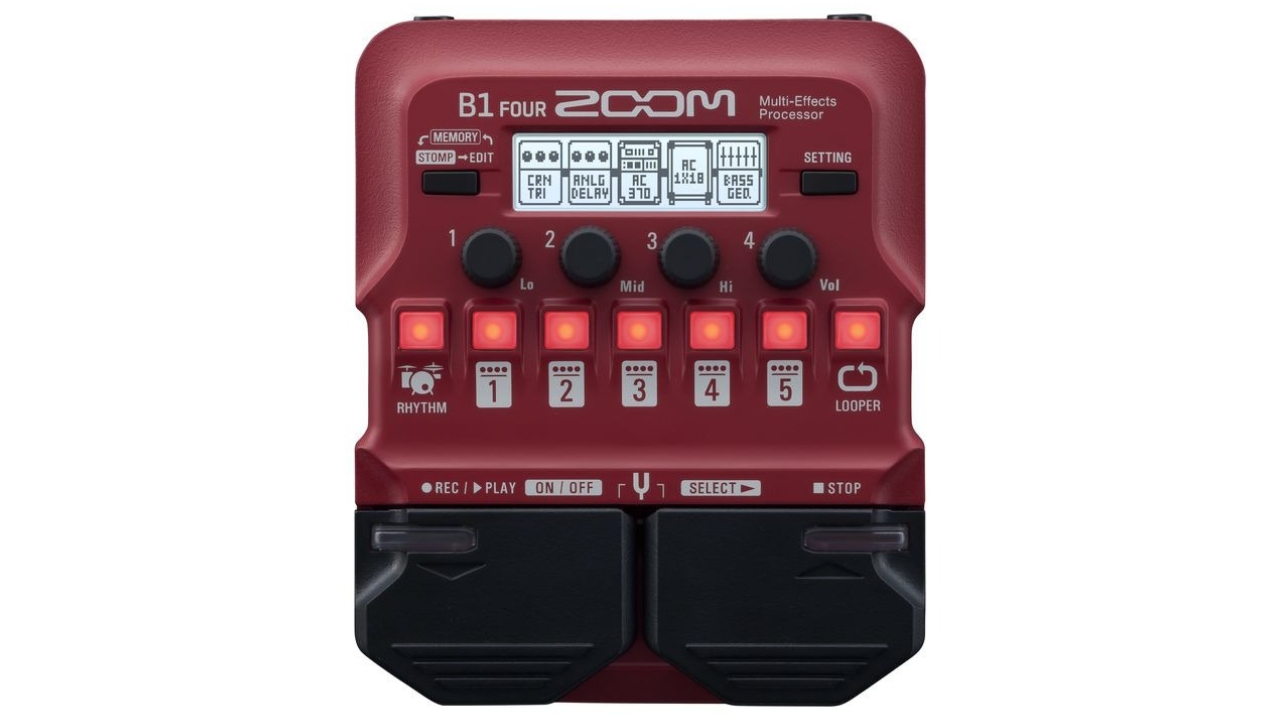
6. Zoom B1 FOUR
Our expert review:
Specifications
Reasons to buy
Reasons to avoid
✅Buy if you play bass: One of few purpose-designed multi-effects for bass guitar, the B1 Four is ideal for burgeoning bassists.
❌Avoid if you need a big screen: The screen is pretty small, so be prepared to squint if you're playing standing up.
There are precious few multi-effects designed specifically for bass guitar, which is exactly why we love the Zoom B1 FOUR. Packing loads of bass-friendly effects and amp models, this compact and low-cost multi-effects is the ideal choice for beginner bassists and those that need low tones on a budget.
One of its cleverest functions is the auto-save feature. This means whenever you make a change things are automatically saved, so you won't suddenly feel silly when you accidentally change to the next patch and undo all your hard work. Of course, if you don't want this feature, it can be turned off.
You can save 40 presets which can cover anything from clean, round, and warm, to straight grinding bass tones with distortion and octave effects. We found the compressors to be particularly good, and the amp and cab sims are fantastic.
Also consider
The above pedals should have most players' needs covered, but if you didn't find what you were looking for, here are some more great cheap multi-effects pedals to choose from.
Boss GT-1
108 effects | Amp modeling | 3 footswitches
Boss is no stranger to multi-FX, and the compact GT-1 is its latest entry offering. It's small enough to fit in a gig bag and features the same core GT engine as found in its higher-spec units. Multiple FX can be combined into a single patch using a relatively intuitive interface, even if it's not the best around. The draw is very much the FX, which as you'd expect from Boss, is top drawer.
★★★★½
Zoom G3XN
68 effects | Amp modeling | 6 footswitches
Where other pedals use a screen to show a virtual signal chain and per-block navigation, the Zoom opts for more of a tactile 'board' feel, with three 'pedals' in a row. Each patch supports seven simultaneous effects, with five amp and cab simulations to choose from. For home use, practice spaces, or even small gigs, the complete signal chains offered by the Zoom are likely to be enough for many players.
★★★★½
Mooer Black Truck
7 effects | No amp modeling | 6 footswitches
The Black Truck is the high-gain sibling of Mooer's Red Truck, though it's possible to get great low-gain sounds from it. Unlike the LCD-screen heavy offerings available elsewhere, the Black Truck opts for a larger, more intuitive front panel, with every parameter accessible. As it's designed to be a complete portable board, it also includes utility features like an EQ and guitar tuner, as well as a case.
★★★★☆
FAQs
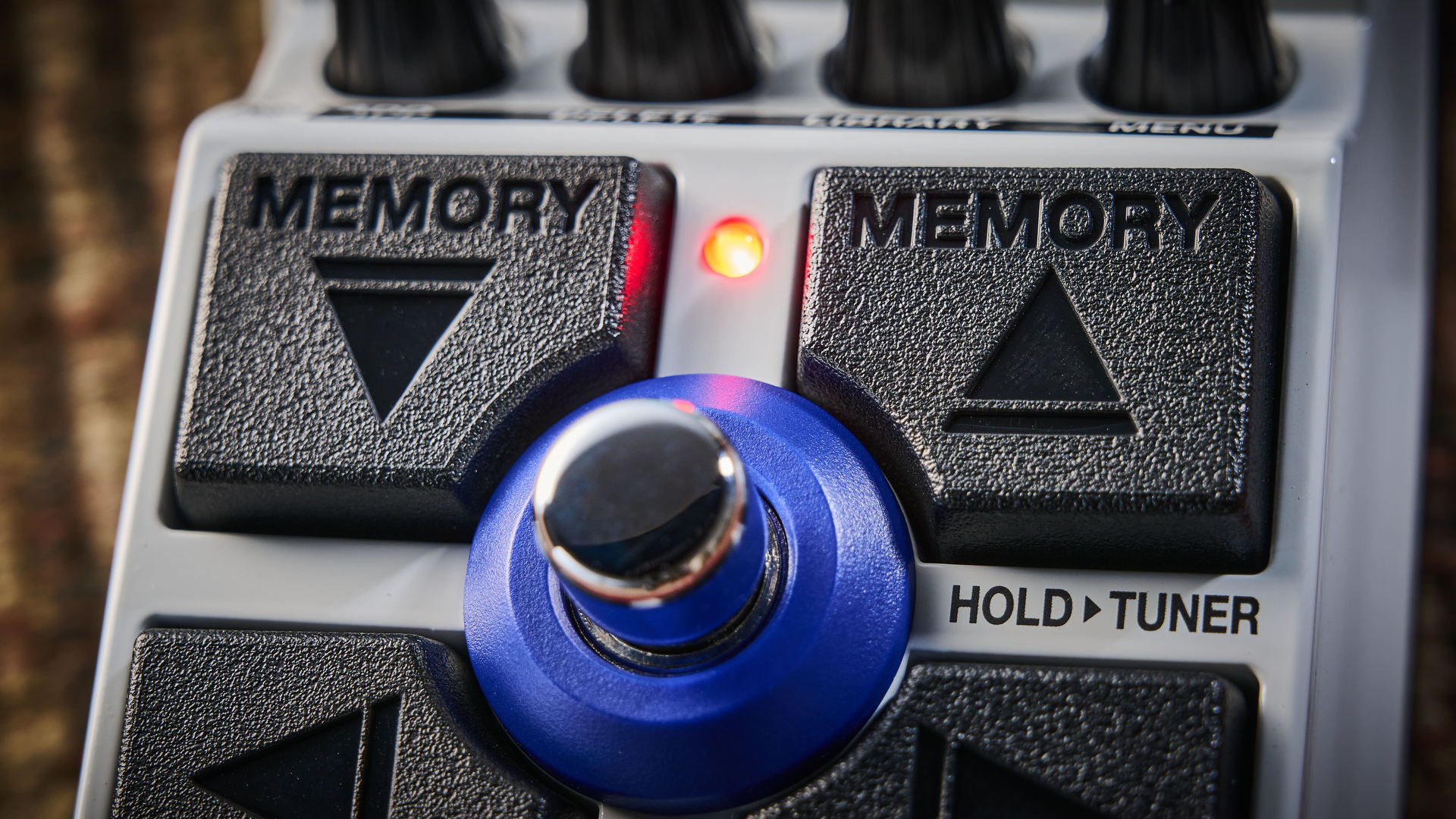
What do I want in a budget multi-effects pedal?
There's a lot of different things that you might want from a budget multi-effects pedal.
Of course, the most important thing is how good the pedal sounds. Though this is somewhat subjective, most budget multi-effects these days will sound good. Whether or not those sounds and all their various parameters appeal to you is another story.
Even if some of them aren't useful to you as a player, to a point, more effects or patches means more options, so that's an important number to know.
Can I run patches simultaneously?
It's also important to know if patches can be run simultaneously, and if so, how many. For example, on modern delay units like the Boss DD-500 you can run two patches in series or parallel. This sort of functionality is even more important on a multi-effect.
Whether or not the pedal has amp simulation is an important factor, as amp modelling is difficult and taxing on a DSP chip. As a result, normally at the budget end of the market you wouldn't expect to see decent amp modelling.
This has changed in recent years, however, with some units offering modelling that's good enough for practice use. Some pedals allow for loading of studio-grade external IRs, which takes the pedal into viable gig-use territory.
Can I edit each effect?
Some units will have more editable parameters per patch than others, while some have software companions, and allow loading and saving. This means that useful patches can be shared by a community of users. Some pedals like the Zoom MS-series have an enthusiastic community around them, with a subreddit to share patches and advice.
Do I want mono or stereo?
A key question is whether the pedal is mono or stereo, and what inputs it has. Some have a built-in expression pedal, while others allow for an expansion unit to be plugged in. The ability to expand either the number of footswitches or to add expression is very useful, especially if the stock unit is compact.
Is the user interface important in a budget multi-effects?
Finally, the user interface is the most important feature besides core sound. If the pedal feels good to use, then you will enjoy using it. Intuitive pedal design isn't a given though, and even pedals with touch interfaces sometimes get it wrong. In recent years, the best interface has been that of the Line 6 Helix series, but other manufacturers have been working hard to catch up.
How we test
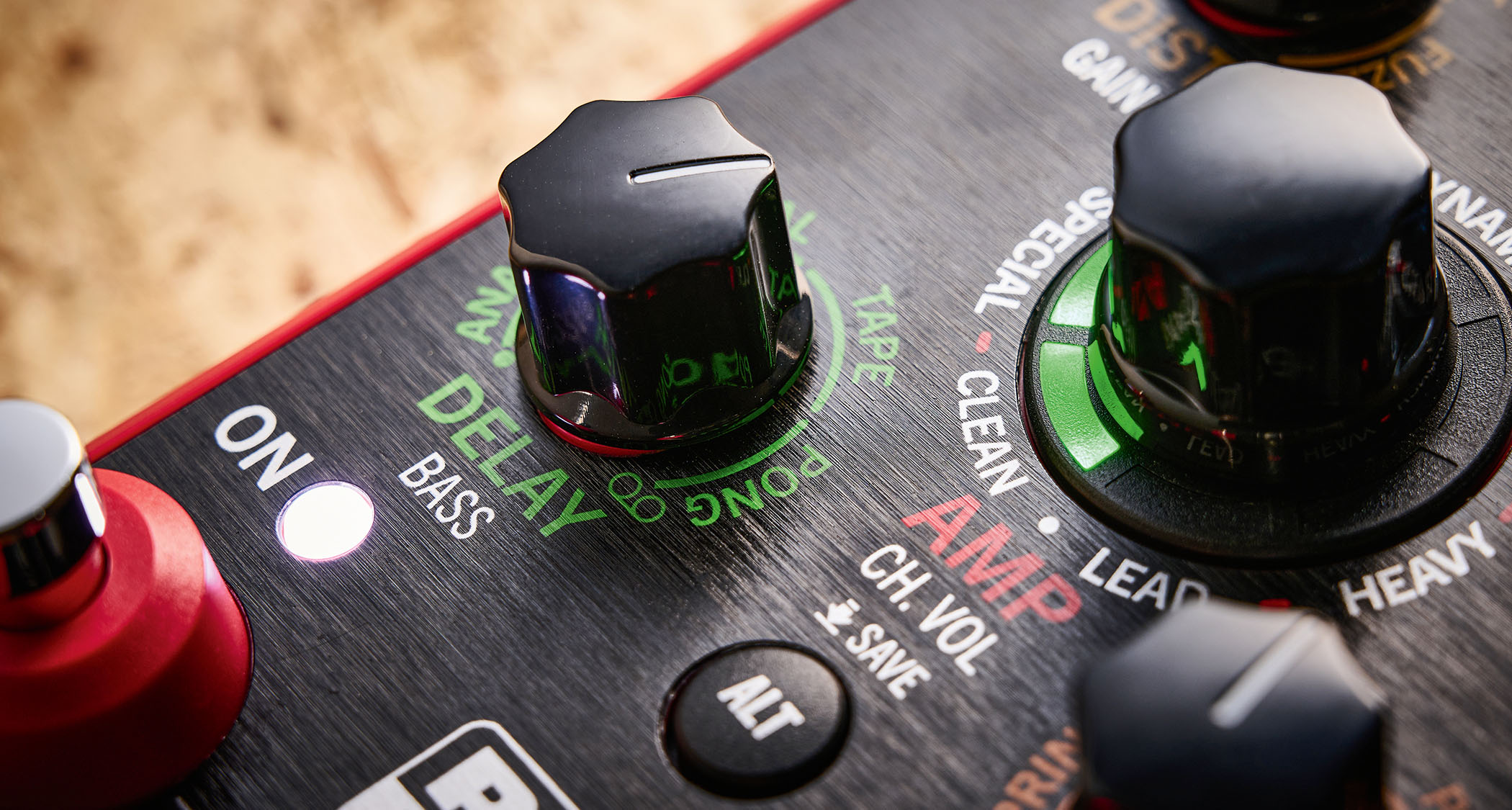
With any multi-effects pedal we get our hands on, there are several stringent measures that it needs to pass before it'll reach consideration for our guides. We're all guitar players ourselves here at Guitar World, so we'd never recommend something we wouldn't use ourselves.
When reviewing multi-effects pedals the first thing we'll look at is the build quality. We want to see that the pedal can handle repeated stomping, that it'll survive being put in a backpack and taken to rehearsals, and that the knobs are all nice and solid. We'll use the pedal in our own playing, taking it to gigs or practice to be certain it will stand the test of time.
Our next test is one of usability. We're looking to see how difficult the pedal is to navigate, whether you need to access the manual to work out certain features, and simply how it is to live with it as part of your rig. We'll aim to do this over the course of at least two weeks, so we can get a true representation of what it's like to use on a day-to-day basis.
Finally, using our years of experience reviewing guitar gear, we'll judge the sound. We always appreciate this is a subjective experience, but as we get our hands on more gear than most, it puts us in an excellent position to make a judgment on whether it meets the sound quality test.
Read more about our rating system, how we choose the gear we feature, and exactly how we test each product.
Related buyer's guides
You can trust Guitar World
- Check out our guide to the best guitar pedals for beginners
- Save space with the best mini pedals
- Grab something low-cost with the best cheap looper pedals
- The best budget reverb pedals will expand your tone
- Get budget gain with the best cheap overdrive pedals
All the latest guitar news, interviews, lessons, reviews, deals and more, direct to your inbox!
Alex Lynham is a gear obsessive who's been collecting and building modern and vintage equipment since he got his first Saturday job. Besides reviewing countless pedals for Total Guitar, he's written guides on how to build your first pedal, how to build a tube amp from a kit, and briefly went viral when he released a glitch delay pedal, the Atom Smasher.
- Matt McCrackenJunior Deals Writer
- Daryl RobertsonSenior Deals Writer
- Ross Holder
